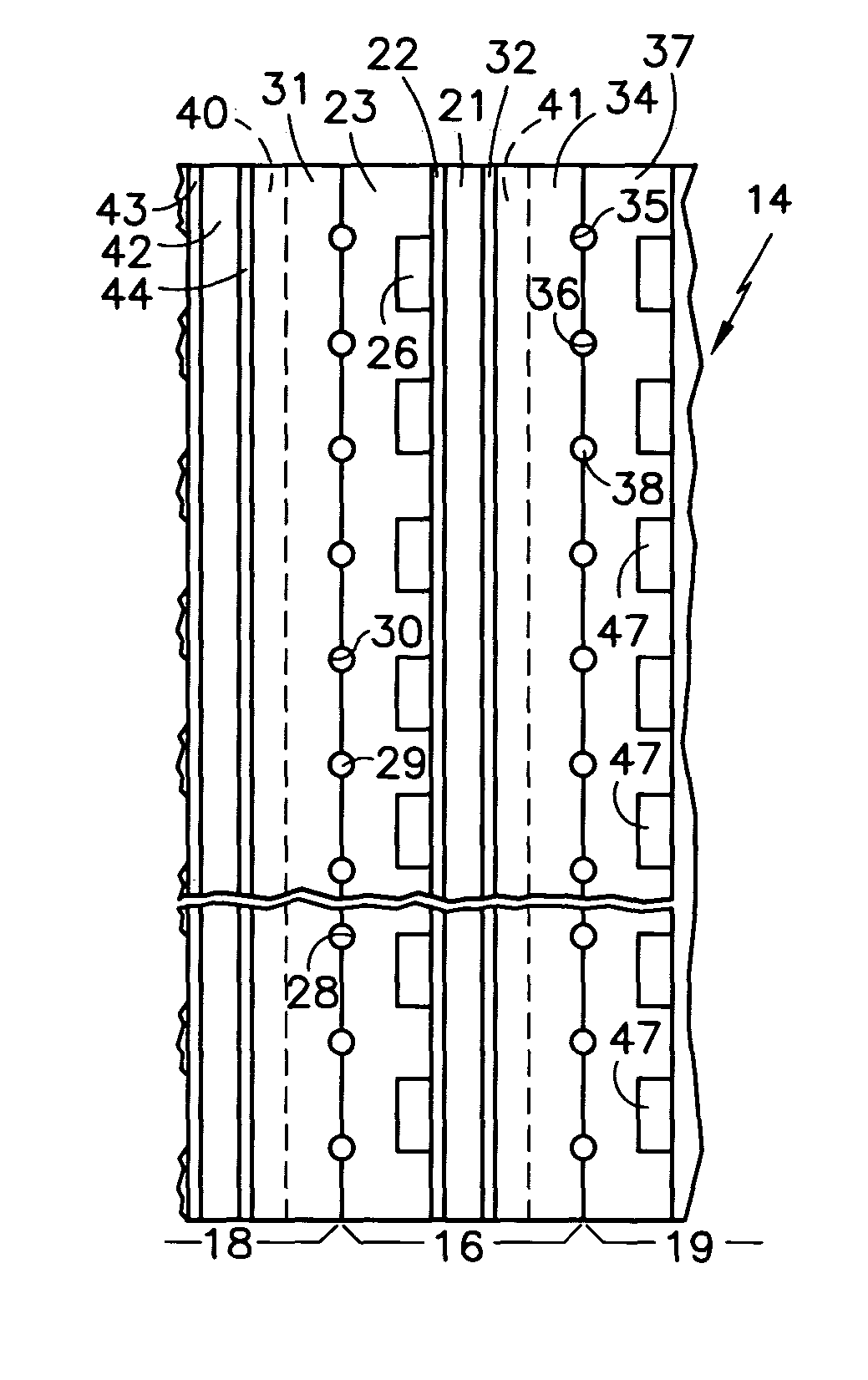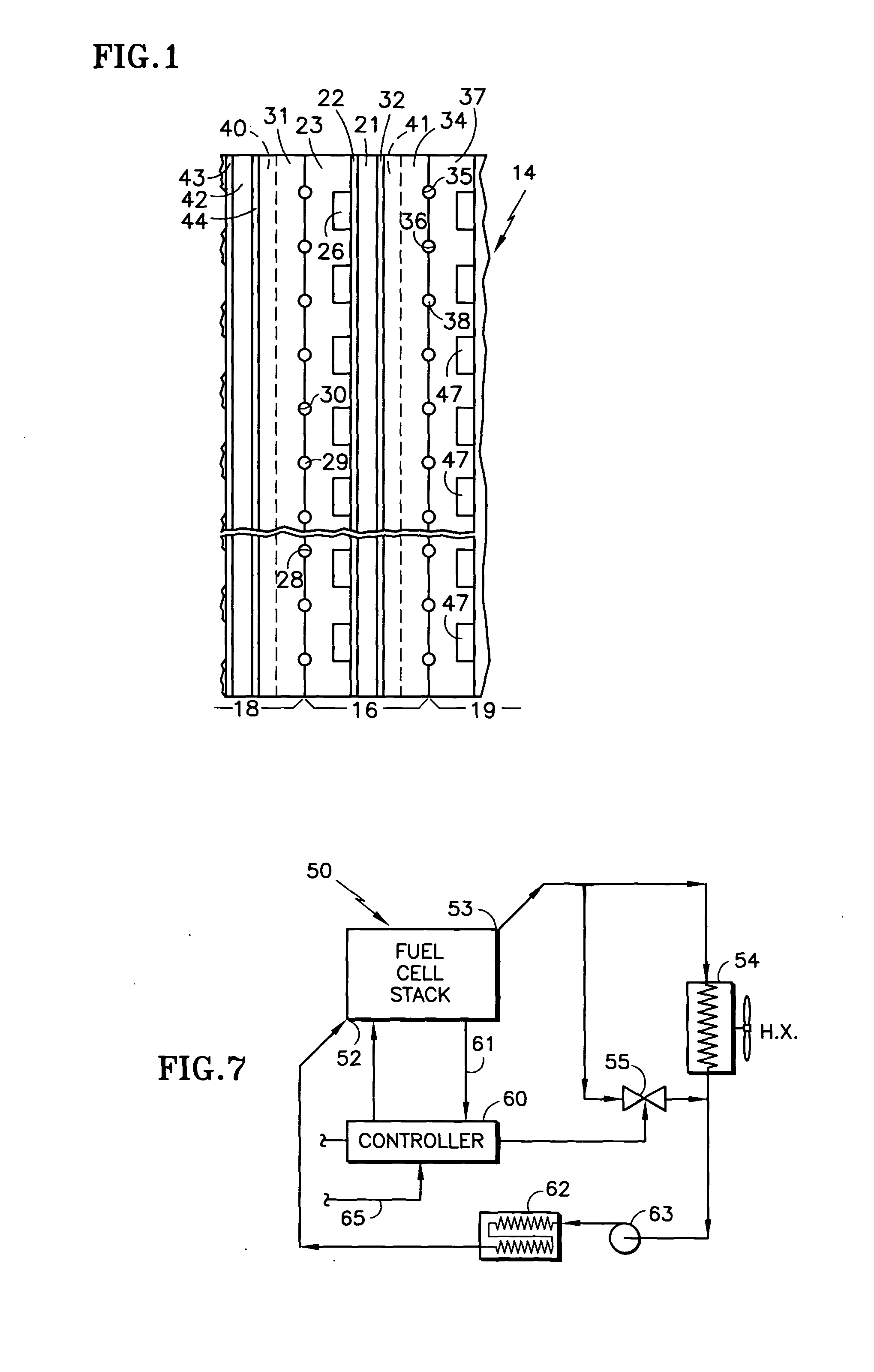PEM fuel cell with high porosity water transport plates and temperature increase before shut down in subfreezing conditions
a fuel cell and water transport plate technology, applied in cell components, electrochemical generators, portable power-driven tools, etc., can solve the problems of significant delay before the vehicle can be operated, and the use of insulation has heretofore not been a practical solution to the freezing of fuel cells, so as to maximize the time of fuel cells. , the effect of increasing the amount of time that a fuel cell can be operated
- Summary
- Abstract
- Description
- Claims
- Application Information
AI Technical Summary
Benefits of technology
Problems solved by technology
Method used
Image
Examples
Embodiment Construction
[0020] In FIG. 1, a fuel cell stack 14 has fuel cells; only a fuel cell 16 and portions of adjacent fuel cells 18, 19 are shown. The fuel cell 16 comprises a membrane electrode assembly 21 which includes a proton exchange membrane together with cathode and anode catalysts. An anode support plate 22 is adjacent to a porous anode water transport plate 23, which includes fuel flow field passages 26 and grooves 28 which make up coolant water passageways 29 when matched with grooves 30 on an adjacent cathode water transport plate 31. Similarly, a cathode support plate 32 is adjacent to a porous cathode water transport plate 34 which has grooves 35 which will form water passages 38 when matched with grooves 36 of an additional anode water transport plate 37 of the next fuel cell 19. In many fuel cells, the grooves are only in one of the water transport plates, the water transport plate adjacent thereto being flat. The cathode water transport plate 31 of the cell 18 has oxidant reactant ga...
PUM
| Property | Measurement | Unit |
|---|---|---|
| porosity | aaaaa | aaaaa |
| temperature | aaaaa | aaaaa |
| temperature | aaaaa | aaaaa |
Abstract
Description
Claims
Application Information
 Login to View More
Login to View More - Generate Ideas
- Intellectual Property
- Life Sciences
- Materials
- Tech Scout
- Unparalleled Data Quality
- Higher Quality Content
- 60% Fewer Hallucinations
Browse by: Latest US Patents, China's latest patents, Technical Efficacy Thesaurus, Application Domain, Technology Topic, Popular Technical Reports.
© 2025 PatSnap. All rights reserved.Legal|Privacy policy|Modern Slavery Act Transparency Statement|Sitemap|About US| Contact US: help@patsnap.com



